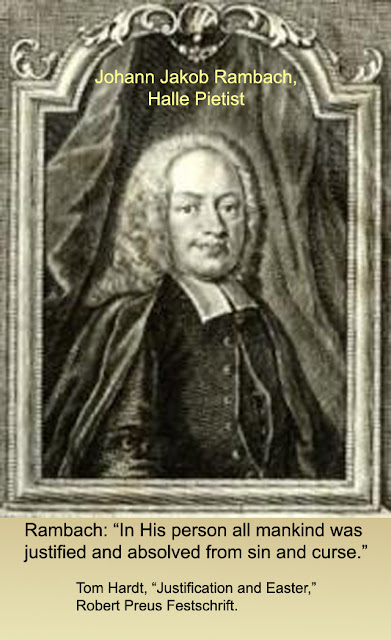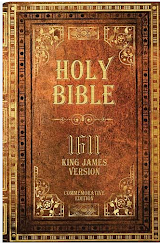 |
| Chartres Cathredral Rose Window |
Luther's Second Sermon for ROGATE - FIFTH SUNDAY AFTER EASTER
KJV John 16:23 And in that day ye shall ask me nothing. Verily, verily, I say unto you, Whatsoever ye shall ask the Father in my name, he will give it you. 24 Hitherto have ye asked nothing in my name: ask, and ye shall receive, that your joy may be full. 25 These things have I spoken unto you in proverbs: but the time cometh, when I shall no more speak unto you in proverbs, but I shall shew you plainly of the Father. 26 At that day ye shall ask in my name: and I say not unto you, that I will pray the Father for you: 27 For the Father himself loveth you, because ye have loved me, and have believed that I came out from God. 28 I came forth from the Father, and am come into the world: again, I leave the world, and go to the Father. 29 His disciples said unto him, Lo, now speakest thou plainly, and speakest no proverb. 30 Now are we sure that thou knowest all things, and needest not that any man should ask thee: by this we believe that thou camest forth from God.
This sermon on prayer is in part a repetition of the preceding sermon.
German text: Erlangen Edition, 12:165; Walch Edition, 11:1251; St. Louis Walch, 11:927.
CONTENTS:
THE FIVE REQUISITES OF TRUE PRAYER.
I. THE FIRST REQUISITE —THE PROMISE OF GOD TO MAN 1.
II.THE SECOND REQUISITE —FAITH IN GOD’ S PROMISE 2.
III. THE THIRD REQUISITE-FAITH THAT OUR PRAYER WILL BE HEARD
* He who doubts that he will be heard commits a double sin 3-4.
IV. THE FORTH REQUISITE — ASENSE OF OUR UNWORTHINESS 5-6.
V. THE FIFTH REQUISITE -THAT WE DO NOT LIMIT GOD IN ANY WAY
A SERMON ON PRAYER.
1. First we note that in order for a prayer to be really right and to be heard five things are required. The first is, that we have from God his promise or his permission to speak to him, and that we remember the same before we pray and remind God of it, thereby encouraging ourselves to pray in a calm and confident frame of mind. Had God not told us to pray, and pledged himself to hear us, none of his creatures could ever, with all their prayers, obtain so much as a grain of corn. From this, then, there follows that no one receives anything from God by virtue of his own merit or that of his prayer. His answer comes by virtue of the divine goodness alone, which precedes every prayer and desire, which moves us, through his gracious promise and call, to pray and to desire, in order that we may learn how much he cares for us, and how he is more ready to give than we are to receive. He would have us seek to become bold, to pray in a calm and confident spirit, since he offers all, and even more, than we are able to ask.
2. In the second place, it is necessary that we never doubt the pledge and promise of the true and faithful God. For even to this end did God pledge himself to hear, yea, commanded us to pray, in order that we may always have a sure and firm faith that we will be heard; as Jesus says in Matthew 21:22: “All things, whatsoever ye shall ask in prayer, believing, ye shall receive.” Christ says in Luke 11:9-13: “And I say unto you, Ask, and it shall be given you; seek, and ye shall find; knock, and it shall be opened unto you. For every one that asketh receiveth; and he that seeketh findeth; and to him that knocketh it shall be opened. And of which of you that is a father shall his son ask a loaf, and he give him a stone? or a fish, and he for a fish give him a serpent? Or if he shall ask an egg, will he give him a scorpion? If ye then, being evil, know how to give good gifts unto your children, how much more shall your heavenly Father give the Holy Spirit to them that ask him?” With this and like promises and commands we must consolingly exercise ourselves and pray in true confidence.
3. In the third place, if one prays doubting that God will hear him, and only offers his prayers as a venture, whether it be granted or not granted, he is guilty of two wicked deeds. The first is, that he, himself, makes his prayer unavailing and he labors in vain. For Jesus says: “Whoever will ask of God, let him ask in faith, nothing doubting: for he that doubteth is like the surge of the sea driven by the wind and tossed. For let not that man think that he shall receive anything of the Lord.” James 1:6-7. He means that the heart of such a man does not continue stable, therefore God can give it nothing; but faith keeps the heart calm and stable and makes it receptive for the divine gifts.
4. The other wicked deed is, that he regards his most true and faithful God as a liar and an unstable and doubtful being; as one who can not or will not keep his promise; and thus through his doubt he robs God of his honor and of his name of truth and faithfulness. In this, such a grievous sin is committed that by this sin a Christian becomes a heathen, denying and losing his own God, and thus he remains in his sin, and must be condemned forever, without comfort. Moreover, if he receives that for which he prays, it will be given, not for his salvation, but for his punishment in time and eternity and it is not for the sake of the prayers, but because of his wrath that God rewards the good words which were spoken in sin, unbelief and divine dishonor.
5. In the fourth place, some say: Yes, I would gladly trust that my prayer would be heard, if I were only worthy and prayed aright. My answer is: If you do not pray until you know and experience that you are fit, then you will never need to pray. As I have said before, our prayers must not be founded nor rest upon ourselves or their own merits, but upon the unshakable truth of the divine promise. Where they are founded upon anything else, they are false, and deceive us, even though the heart break in the midst of its great devotions and we weep drops of blood. The very reason we do pray is because of our unworthiness; and just through the fact that we believe we are unworthy and confidently venture upon God’s faithfulness to his Word do we become worthy to pray and to be heard. Be you as unworthy as you may, only look to it, and with all earnestness accept it as true, that a thousandfold more depends upon this, that you know God’s truth and not change his faithful promise into a lie by your doubting. Your worthiness does not help you, but your unworthiness is no barrier. Disbelief condemns you, and trust makes you worthy and sustains you.
6. Therefore, be on your guard all through life that you may never think yourself worthy or fit to pray or to receive; unless it be that you discover yourself to be a freebold character risking all upon the faithful and sure promises of your gracious God, who thus wishes to reveal to you his mercy and goodness. Just as he, out of pure grace, has promised you, being so unworthy, an unmerited and unasked hearing, so will he also hear you, an unworthy beggar, out of pure grace, to the praise of his truth and promise. This he does in order that you may thank, not your worthiness, but his truth, by which he fulfils his promise, and that you thank his mercy that gave the promise, that the saying in Psalm 25:8-10 may stand: “Good and upright is Jehovah: Therefore will he instruct sinners in the way. The meek will he guide in justice; and the meek will he teach his way.
All the paths of Jehovah are loving kindness and truth unto such as keep his covenant and his testimonies.” Loving-kindness or mercy in the promise; faithfulness and truth in the fulfilling or hearing of the promises.
And in another Psalm he says: “Mercy and truth are met together; righteousness and peace have kissed each other.” Psalm 85:10. That is, they come together in every work and gift we receive from God through prayer.
7. In the fifth place, one should so act in this confidence of prayer as not to limit God and specify the day or place, nor designate the way or measure of the prayer’s fulfillment; but leave all to his own will, wisdom and almighty power. Then confidently and cheerfully await the answer, not even wishing to know how and where, how soon, how long, and through whom. His divine wisdom will find far better ways and measures, time and place, than we can devise, even should we perform miracles. So, in the Old Testament, the children of Israel all trusted in God to deliver them while yet there was no possible way before their eyes, nor even in their thoughts; then the Red Sea parted and offered them a way through the waters, and suddenly drowned all their enemies. Exodus 14.
8. Thus Judith, the holy woman, did when she heard that the citizens of Bethulia wished to deliver the city to their enemies within five days if God, in the meantime, did not help. She reproved them and said, Now who are ye, that have tempted God? They are not designs by which one acquires grace; but they awaken more disgrace. Do you wish to set a time for God to show you mercy, and specify a day according to your own pleasure?
Judith 8:10-12. Then the Lord helped her in a wonderful manner, in that she cut off the head of the great Holofernes and dispersed the enemies.
9. In like manner, St. Paul says that God’s ability is thus proved, in that he does exceeding abundantly above and better than we ask or think. Ephesians 3:20. Therefore, we should know that we are too finite to be able to name, picture or designate the time, place, way, measure and other circumstances for that which we ask of God. Let us leave that entirely to him, and immovably and steadfastly believe that he will hear us.










































































































































































































